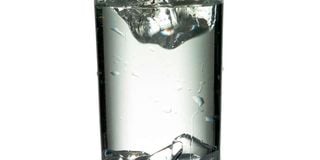Is your drinking water safe?

Drinking water should not be saline and should be fairly clear.
What you need to know:
- Although there is nothing wrong with preferring bottled water over tap water, be careful about the type of water in your bottle
- Cunning water bottling businesses in Kenya have been previously nabbed selling tap water as bottled and purified water.
Preferences for water have changed rapidly, going by the number of purifying water kiosks opened across the country. More people are shutting down their in-house tap water in favour of water bought from a distiller or purifier. According to the United Nations Educational, Scientific and Cultural Organization’s (UNESCO) research report on consumer preferences between bottled water and tap water, most people have shifted towards bottled water due to their dissatisfaction with tap water’s taste and health and risk concerns. “Quality of water and social status has also become factors, as well as public trust in tap water companies,” the report that was authored by Dr. Miguel Doria from UNESCO said. This report also appeared in the Journal of Water and Health.
Although there is nothing wrong with preferring bottled water over tap water, be careful about the type of water in your bottle. Cunning water bottling businesses in Kenya have been previously nabbed selling tap water as bottled and purified water. Additionally, be cautious about the water you consume if you have a poor immune system.
Poor immune system
According to the Centre for Disease Control, be careful with the water you drink if you have a compromised immune system. “Persons with weakened immune systems should take special precautions with the water they drink. These include people living with HIV, those with diabetes, those who have undergone organ transplants, and those going through chemotherapy,” the CDC states. The CDC also states that there are certain lethal parasites that can take advantage of water that has not been treated properly to penetrate the body. One of these parasites is known as crypto or cryptosporidium. This is the parasite that causes the diarrheal disease known as cryptosporidiosis.
Parasitic contamination
The parasite is particularly lethal to people with weakened immune systems. “This parasite can cause chronic or severe illness and even life-threatening symptoms in people with weakened immune systems,” the CDC says. The parasite also affects healthy people, but the difference is that unlike persons with compromised immunity, healthy people tend to develop mild illnesses. The CDC explains that water (drinking water and recreational water) is the most common way through which this parasite spreads, which makes it a leading cause of waterborne disease among humans.
The CDC also cautions that even where water has been bottled, it could still be contaminated if it was not properly treated if proper manufacturing processes were not observed if the bottled water was not safely protected during shipping and storage and if the end-user did not observe adequate water bottle hygiene during consumption. “Contaminated bottled water can harm your health, including causing gastrointestinal illness, reproductive problems, and neurological disorders,” states the CDC. “Infants, young children, pregnant women, the elderly, and people with weakened immune systems may be more likely to get sick from some contaminants.”
Plastic contamination
There is also the risk of tiny plastics seeping into your bottled water during processing. For instance, a 2018 test of 250 bottles in Kenya, Brazil, China, India, Indonesia, Lebanon, Mexico, Thailand, and the United States found widespread water contamination with tiny plastic particles. This study was led by microplastic researcher Sherri Mason of the State University of New York at Fredonia. Plastic was identified in 93 percent of the samples, including major name brands such as Aqua, Aquafina, and Dasani. The plastic debris included polypropylene, nylon, and polyethylene terephthalate (PET), which is used to make bottle caps. "There are connections to increases in certain kinds of cancer to lower sperm count to increases in conditions like ADHD and autism," said Mason. "We know they are connected to these synthetic chemicals in the environment and we know that plastics are providing a means to get those chemicals into our bodies." According to Mason, although tap water may also contain plastic contamination it is generally a safer alternative to bottled water because the level of plastic contamination is lower.
What to look out for
When buying bottled water, the least you should do is to pick up a bottle and walk away without examining the contents, and whether the water has been properly treated against parasites such as cryptosporidium. The CDC recommends that when you pick up a bottle of water, you look out for:
- Reverse osmosis
- Distillation
- Filtration with an absolute 1micron filter
“These types of water treatment will show that your bottle of water has been treated against parasites such as cryptosporidium,” the CDC states. In the same vein, the Water Services Regulatory Board (WASREB) in Kenya recommends that the basic requirements for drinking water are:
- Free from pathogenic (disease causing) organisms
- Contain no chemicals that have an adverse or long term effect on human health
- Fairly clear (with low turbidity, little colour)
- Not saline (should not be salty)
- Containing no compounds that cause an offensive taste or smell
- Not causing an encrustation of the water supply system not staining clothes washed in it.





